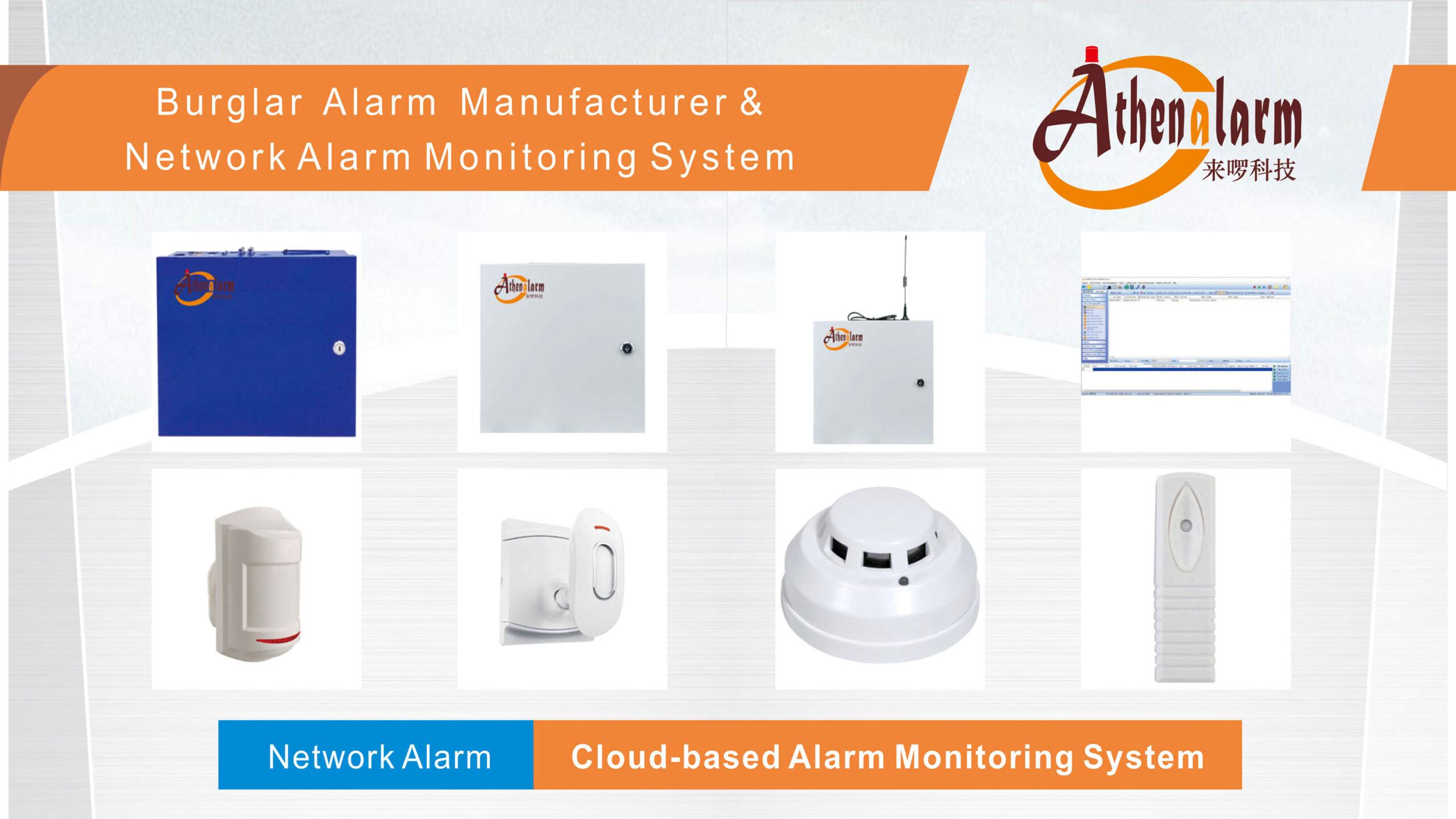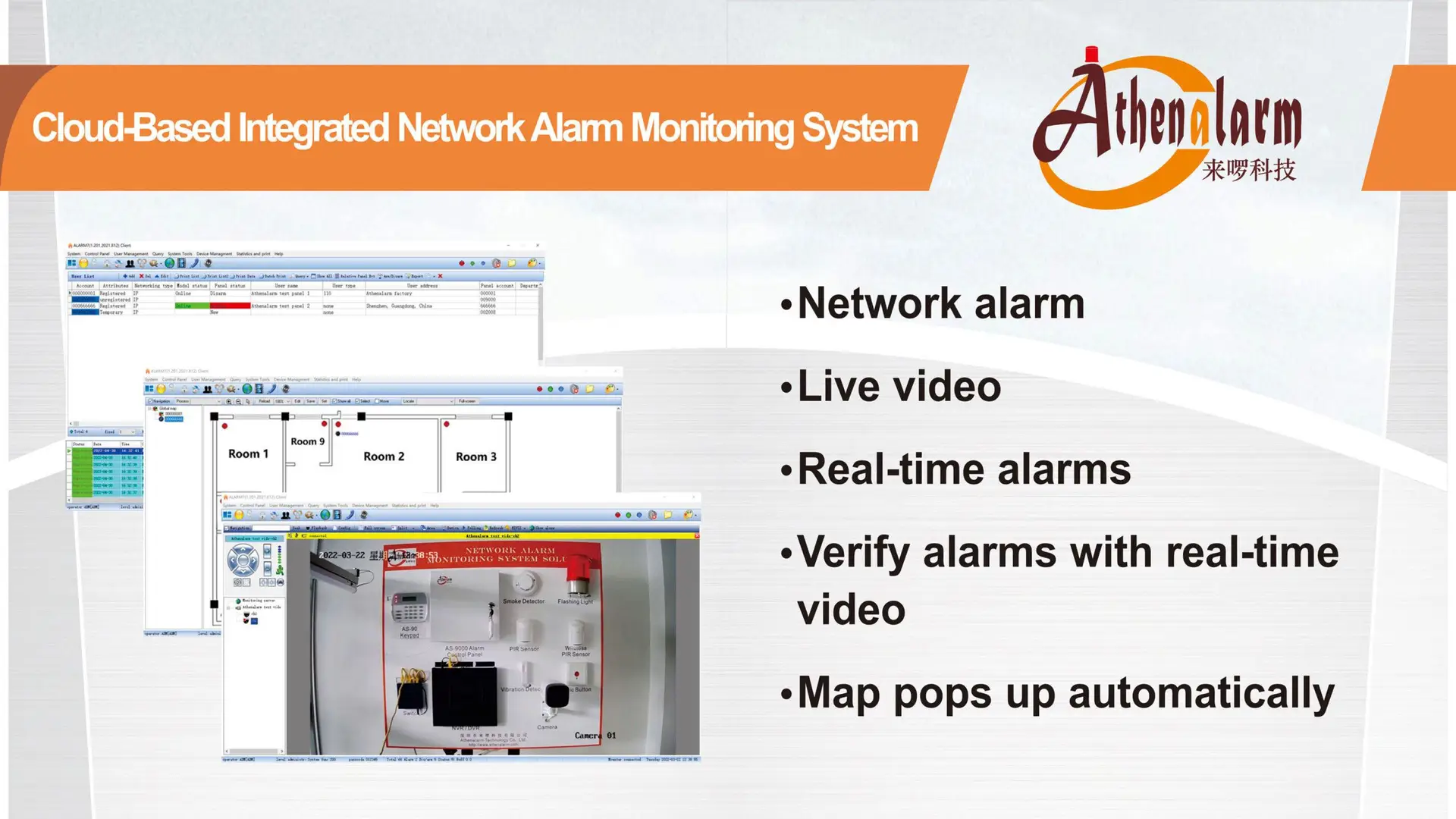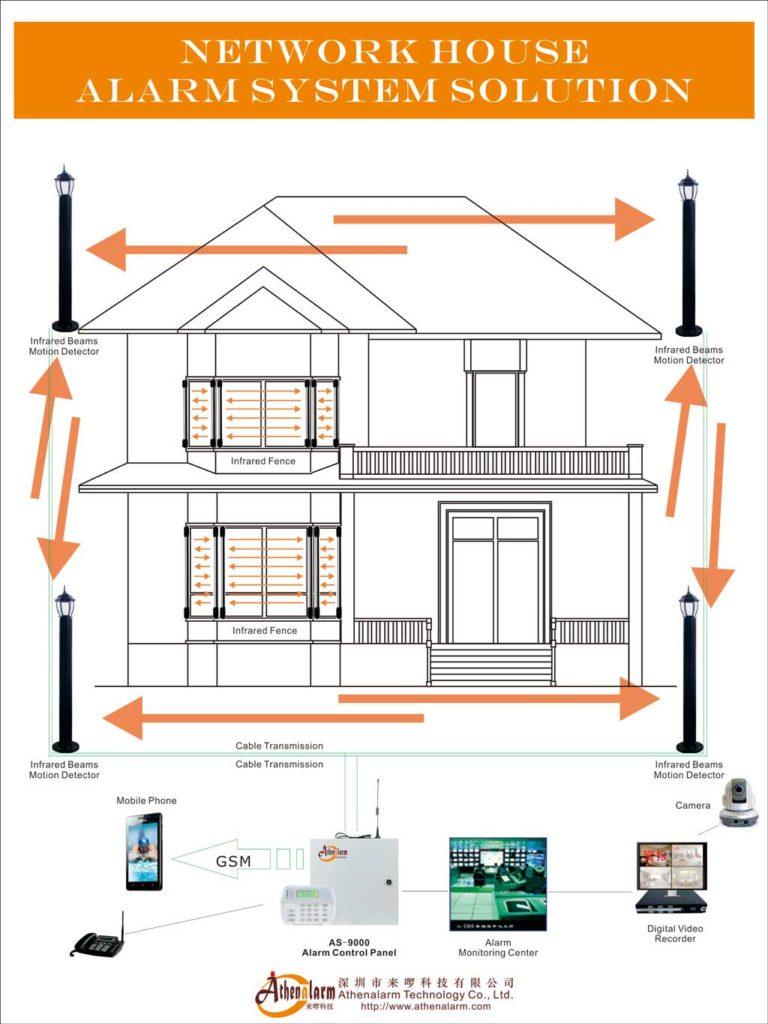



GSM Alarm System: 7 Powerful Reasons It Outperforms Traditional Alarms

Table of Contents
Introduction
In today’s fast-evolving security landscape, legacy alarm systems tied to landlines or Wi-Fi networks are increasingly inadequate—especially in mobile, remote, or infrastructure-constrained environments. That’s where the GSM Alarm System shines.
As a security technology expert with decades of experience in intrusion detection systems, I’ve seen firsthand how GSM Alarm Systems have transformed from niche wireless options into industry-defining solutions. Their infrastructure independence, rapid alert capability, and scalability make them a vital tool for modern security operations.
What Is a GSM Alarm System?
A GSM Alarm System is a wireless security solution that communicates over Global System for Mobile Communications (GSM) networks. Instead of relying on local internet or landlines, the system sends real-time alerts via SMS or phone calls, ensuring continuous protection even in off-grid locations.
These systems are especially well-suited for:
- Remote facilities with no wired connectivity
- Construction sites or mobile retail kiosks
- Residential cabins, vacation properties, and farms
- Temporary or rapidly changing security zones
The GSM Alarm System represents a shift from static, infrastructure-dependent solutions to agile, wireless security ecosystems — ideal for a distributed, always-on business environment.
Why GSM Alarm Systems Outperform Traditional Alarms
No Landline or Wi-Fi Required
Traditional alarms require local telecom or ISP infrastructure. A GSM Alarm System, however, functions wherever there is cellular coverage. It removes the need for broadband, making it ideal for rural areas, mobile deployments, or temporary installations.
🔹 Use case: Farms, remote warehouses, or job sites with no cable access.
Reliable Remote Monitoring
GSM systems allow users to remotely arm/disarm the system and receive status updates and real-time alerts via SMS or mobile apps. For security professionals managing multiple sites, this capability is indispensable.
🔹 Use case: Facility managers monitoring warehouses or unoccupied properties from a central command.
Fast and Direct Alerts via SMS or Calls
Unlike internet-based alerts, which often involve third-party servers, GSM systems provide direct communication through mobile networks — significantly reducing response time.
🔹 Advantage: Immediate awareness leads to faster mitigation, which can be critical during an intrusion.
Easy Wireless Installation
With no drilling, trenching, or hardwiring required, GSM alarm systems can be deployed in minutes. This is a major advantage for short-term leases, mobile kiosks, or temporary events.
🔹 Use case: Ideal for exhibition booths, pop-up stores, or VIP event zones.
Power Outage Resilience
Power failures are common during storms, construction, or sabotage. GSM systems typically include backup batteries, ensuring protection during blackouts.
🔹 Benefit: Continued surveillance and alert functionality even when the power grid is down.
Multi-Zone and Scalable Protection
Most GSM systems support multi-zone configurations, allowing users to monitor multiple areas and scale effortlessly without additional infrastructure.
🔹 Use case: Businesses managing warehouses, multi-building campuses, or expanding commercial sites.
Tamper-Resistant Communication
GSM systems use encrypted mobile communication, making them more resistant to physical sabotage (e.g., cable cutting) and cyber intrusion than traditional systems.
🔹 Security bonus: Even if local networks are down or compromised, GSM signals remain secure and operational.
How GSM Alarm Systems Work: Behind the Tech
A typical GSM security system includes:
- Wireless sensors: Motion detectors, window/door contacts, smoke alarms
- GSM control panel: With a SIM card for mobile connectivity
- Add-ons: Sirens, remote keypads, surveillance cameras
Trigger Sequence
- Intrusion is detected by a sensor.
- The signal is wirelessly transmitted to the control panel.
- The panel immediately sends an SMS or call to pre-set contacts.
Technical Note: These systems often use interference-resistant RF channels like 433MHz or 868MHz, ensuring signal reliability even in complex environments.
Installation & Operation Guide
Quick Setup Steps
- Sensor Placement – Position motion sensors and door/window contacts at critical access points.
- Control Panel Setup – Insert SIM, pair sensors, and power up.
- Configuration – Program emergency contacts, alert types, and SMS commands.
- Testing – Simulate alerts to verify system response and signal integrity.
Operational Best Practices
- Use SMS commands for quick system control.
- Leverage apps (if available) for live system status.
- Set a response hierarchy: e.g., alert on-site guard first, then management.
Expanded Use Cases and Business Value
The GSM Alarm System isn’t limited to homes. It’s a high-impact tool for commercial and industrial sectors that require flexibility, low overhead, and dependable security.
Industrial Applications
- Utility infrastructure (e.g., power plants, water treatment stations)
- Mobile storage units in logistics centers
- Construction and renovation projects
- Telecom towers and remote energy installations
B2B Operational Benefits
- Minimal maintenance, low total cost of ownership
- Rapid redeployment with no rewiring needed
- Scalability across multi-site environments
- No IT dependency – ideal for SMEs without in-house tech teams
Final Thoughts: Why GSM is the Future of Alarm Technology
In a world where agility, uptime, and responsiveness define successful security strategies, the GSM Alarm System stands out as the ideal wireless upgrade. For businesses facing connectivity challenges, expanding footprints, or remote operations, GSM offers:
- Infrastructure freedom
- Unmatched reliability
- Scalable security
- Real-time visibility
As security professionals, we must embrace tools that reduce risk, increase responsiveness, and future-proof our protection strategies. And when compared to traditional systems, GSM alarm solutions do just that — efficiently and affordably.
Frequently Asked Questions (FAQs)
1. What is a GSM Alarm System and how does it work?
A GSM Alarm System is a wireless security system that uses mobile networks to send alerts via SMS or calls. It detects intrusions through sensors and communicates through a GSM module, bypassing landline or internet requirements.
2. Can GSM Alarm Systems work without electricity?
Yes. Most include rechargeable batteries that maintain functionality during power outages, ensuring uninterrupted protection.
3. Is a GSM Alarm System suitable for businesses with multiple locations?
Absolutely. Its remote monitoring and multi-zone configuration make it ideal for managing security across several properties from a central device or app.
4. What happens if someone tries to disable the GSM system?
GSM systems use encrypted communication and do not rely on physical cabling, making them harder to sabotage than traditional wired systems.
5. Do I need internet for a GSM Alarm System to work?
No. The system operates entirely via mobile cellular networks, making it a good fit for areas with limited or no internet connectivity.
6. Can I install a GSM Alarm System myself?
Yes. Most GSM systems are designed for easy DIY installation, often taking under an hour to set up.
7. Are GSM systems expensive to maintain?
No. Maintenance is minimal, and operating costs usually only involve a SIM card plan, which is relatively inexpensive.
8. What kind of locations are best suited for GSM alarms?
Remote sites, construction areas, temporary installations, pop-up shops, vacation homes, and any place without reliable landline or Wi-Fi connectivity.
9. Can GSM alarm systems integrate with cameras or smart devices?
Many models support integration with IP cameras or smart home devices, enhancing surveillance and control.
10. Is GSM secure from hacking or signal jamming?
Modern GSM systems use encryption and advanced signal protocols to protect against tampering and interference.
